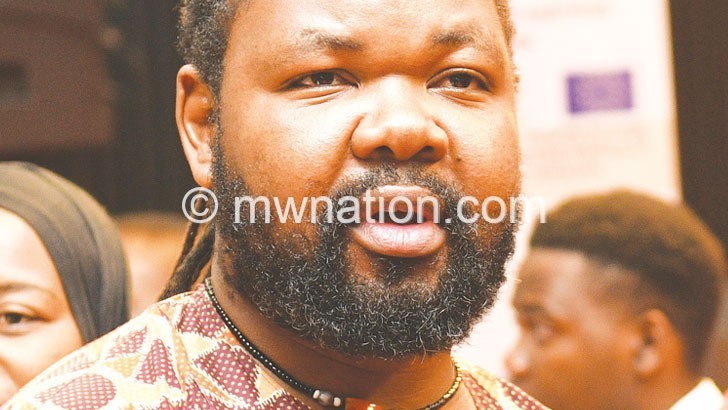‘MBC was set up to fail’
Like other regimes before them, the Tonse Alliance administration promised to deliver an improved Malawi Broadcasting Corporation (MBC). But it appears MBC has merely shifted allegiance to the new administration—news bulletins are focused on the presidency, Cabinet and those voices aligned to the ruling elite. But what should happen to make MBC a true public broadcaster that serves the interest of all as required by the law? Our Staff Writer SUZGO CHITETE speaks to Jimmy Kainja, a communications and media lecturer at Chancellor College, a constituent college of the University of Malawi. Excerpts:

Almost all regimes, after 1994, have promised to make MBC accessible to all, but this has not fully materialised. The Tonse Alliance administration has promised the same, should Malawians have hope?
This is true, the promises have been there and the current administration might argue that they should be judged after their term in office. Yet, the question is valid given the precedent. I think politicians promised to make MBC accessible before diagnosing the genesis of the problem at the institution. When you look at the telecommunication reforms of the 1990s, you will realise that MBC, as a public broadcaster, was set up to fail. MBC was legally established by the Communications Act of 1998 as a public broadcaster. But instead of letting MBC operate as a public broadcaster, as provided for in the law, we have allowed politicians to dictate how MBC should operate and this is the basis of political promises to open up MBC. MBC operates at the mercy of the ruling party, and it’s inevitable that the ruling party will always use it to its advantage while denying the opposition access. It would be interesting to have an honest opinion from those who have been in power why they failed to respect the law and let MBC operate as a public broadcaster, not State broadcaster.
We have the law that established MBC as a public broadcaster, but in reality MBC is not what it is legally supposed to be. Is the law a problem?
I think the law was put in place with the assumption that the country would have responsible leaders who would respect the laws of the country. But clearly this is not the case, at least in respect of MBC. But this also happens because the country’s telecommunications regulator, Macra [Malawi Communications Regulatory Authority], lacks political independence to compel MBC to operate according to its mandate. The regulator is also a captured institution, working in the interest of a party(s) in power and because of this, it is powerless to provide checks on MBC. The government must safeguard the independence of the regulator not telling it what to do. There are numerous times when the regulator has failed to discipline/punish MBC while is it always swift at disciplining/punishing commercial broadcasters. MBC will only change when politicians give the institution, as well as the regulator, freedom to operate according to the law, not according to wishes of politicians, it does not matter how sincere these politicians may be. Let’s give the law a chance.
When people talk about reforming MBC the focus is so much on how the director general is appointed. Do you think the appointment is the major problem?
It is one of the problems. Good practice entails that a public broadcaster must enjoy editorial independence, and this can only be guaranteed when its director and the board are independently appointed. A public broadcaster must be run by an independent board whose mandate is to operate in the public interest; must not be subjected to political or economic interference; and its independence must be laid down and be protected by law. A public broadcaster must be accountable to a multiparty body, Parliament, not the Executive. This body must ensure that the public broadcaster is adequately funded in a manner that protects its independence. These aspects are important in safeguarding the independence of the public broadcaster. You can see at MBC that the manner in which the board and the director general are appointed trickles down to the recruitment of staff, many of whom end up ditching journalistic ethics and professional standards to become political operatives. There is a clear incentive for them doing this—they protect their jobs, possible promotions, overseas and regional trips etc. In the end it is the institution that suffers, and by implication, democracy as well.
MBC employees have openly declared political allegiance. Is this something to worry about when employees side with the ruling elite? Are employees a problem to look at in the reforms?
While privately all journalists have their own political allegiances, this is a problem when journalists allow these allegiances to dictate their profession. What has been visible at MBC is that journalists switch their allegiance from professionalism and code of ethics to political supporters, as I have indicated above. This is a problem, especially for a public broadcaster which has a specific legal mandate to remain politically neutral. This is very clear under Section 87(2) of Communications Act, 1998.
MBC is subvented by government. What’s your take, should MBC be funded by government or run on its own?
For the sake of independence and to safeguard its public service mandate, MBC should be funded by the public. The problem is that in Malawi we often talk of “government” in reference to the Executive arm of the government but the key is to ensure that the public broadcaster must be accountable to a multiparty body, Parliament, not the Executive. This body must ensure that the public broadcaster is adequately funded in a manner that protects its independence.





